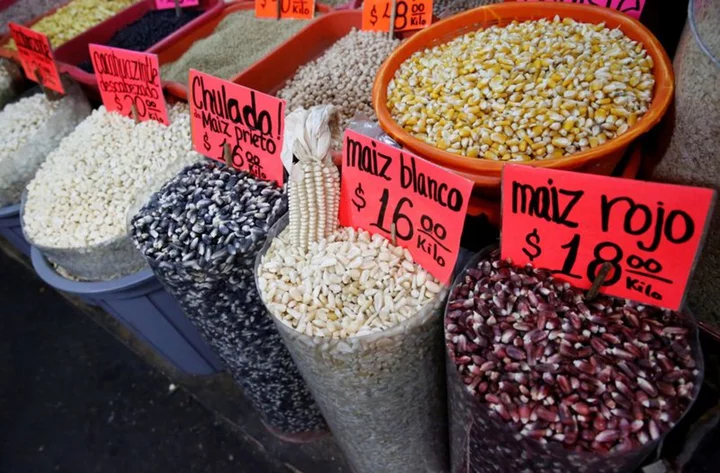By David Lawder
WASHINGTON The United States on Thursday escalated its objections to Mexico's curbs on genetically modified corn imports, requesting a dispute settlement panel under the North American trade pact, the U.S. Trade Representative's office said.
The request to send the dispute to arbitrators was announced after formal consultations failed to resolve deep divisions between the two close trading partners over the use of genetically modified (GM) corn, widely produced by U.S. farmers.
Washington alleges that Mexico's decree banning imports of GM corn used in dough and tortillas for human consumption is not based on science and violates its commitments under the U.S.-Mexico-Canada Agreement on trade launched in 2020.
If the panel rules in favor of the U.S. and Mexico fails to comply with its directives, USTR would ultimately win the right to impose punitive tariffs on Mexican goods, a move that could spark a rare North American trade war.
U.S. Trade Representative Katherine Tai said in a statement that the move was aimed at enforcing Mexico's USMCA obligations to maintain science-based regulations on agricultural biotechnology.
"It is critical that Mexico eliminate its USMCA-inconsistent biotechnology measures so that American farmers can continue to access the Mexican market and use innovative tools to respond to climate and food security challenges," Tai said.
Mexico buys about $5 billion worth of corn from the U.S. each year, making the U.S. its largest trading partner. Most of those purchases are GM yellow corn used for livestock feed.
The panel request follows 75 days of formal consultations requested by U.S. officials in June. Mexico has sought U.S. cooperation to jointly conduct scientific research on the health impacts of genetically modified corn, but Mexican officials told Reuters on Aug. 3 that their U.S. counterparts denied the request. Mexico argues that biotech corn harms native varieties and may have adverse health effects.
"Mexico's approach to biotechnology is not based on science and runs counter to decades' worth of evidence demonstrating its safety and the rigorous, science-based regulatory review system that ensures it poses no harm to human health and the environment," U.S. Agriculture Secretary Tom Vilsack said in the statement.
He added that innovations in agricultural biotechnology to enhance yields also help ease challenges on global food and nutrition security, climate change and food price inflation.
(Reporting by David Lawder; Editing by Paul Simao)









